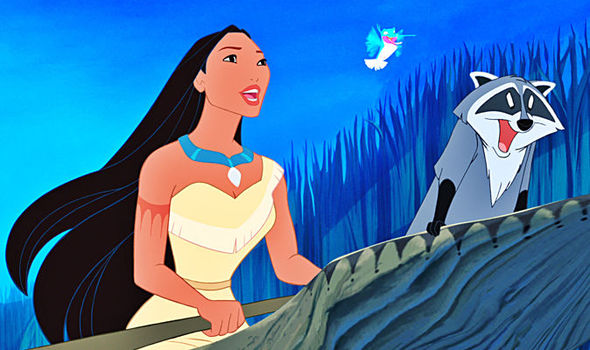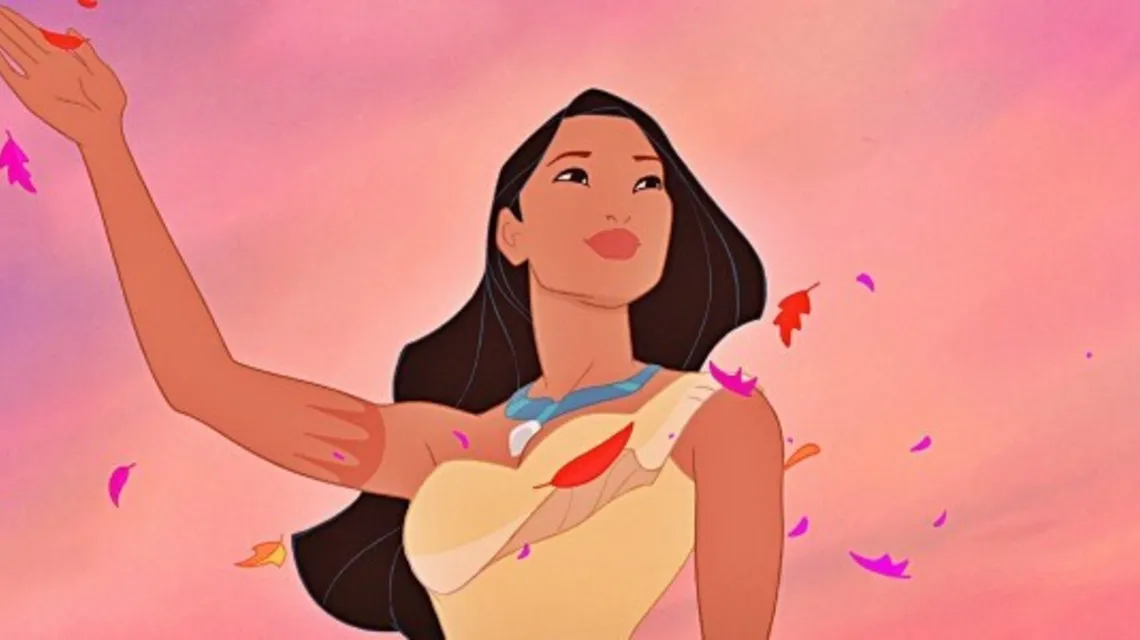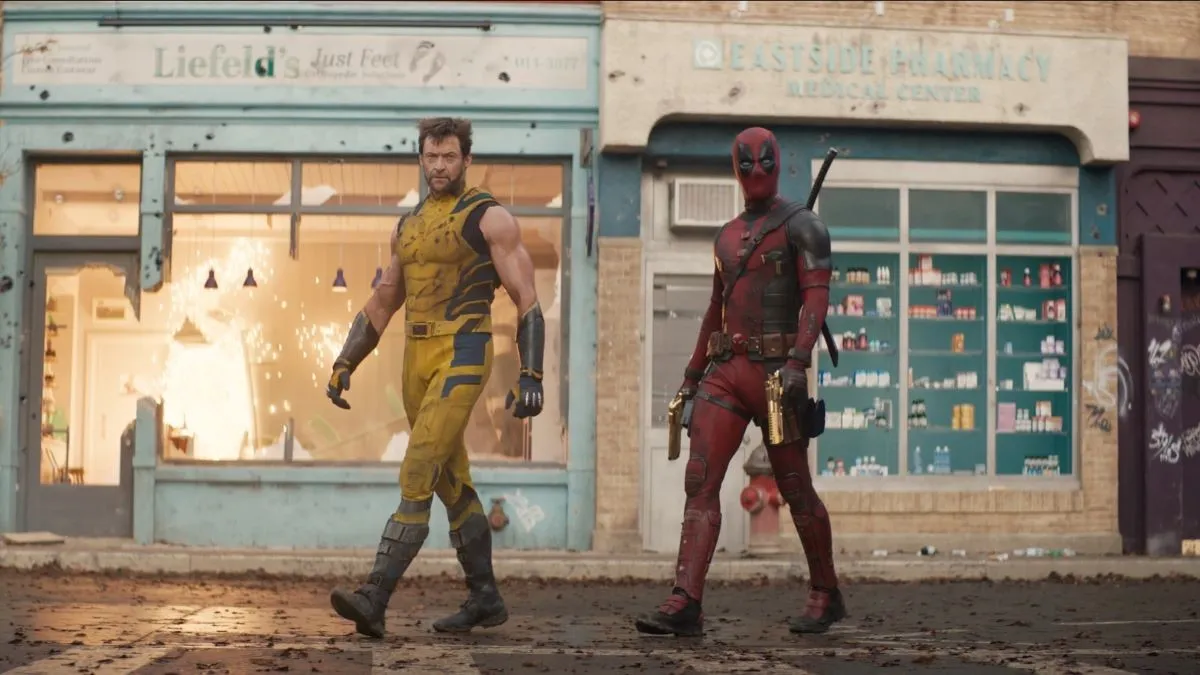There are a few reasons to talk about Pocahontas, the 1995 animated Disney film, now. The film is out on Disney+ with the rest of the Disney Vault (though it was on Netflix previously), and Disney’s treatment of indigenous peoples, good and bad, is back in the conversation again thanks to the indigenous plotline/elements in Frozen II. But it’s also Thanksgiving weekend which means that it’s time for the annual tradition of white idiots – including the writers of Saturday Night Live – thinking Pocahontas was involved in the first Thanksgiving.
Let’s be clear here, Pocahontas and her tribe lived in what is now Virginia in the 1600s, and met John Smith and the Jamestown colonists in 1609. The “first Thanksgiving” happened in Plymouth, Massachusets in 1621 and was an unrelated event.
Still, the myth of how Pocahontas saved John Smith from execution by her father, Chief Powhatan, is similar to the the story of the first Thanksgiving in that it paints a rosy picture of harmony and acceptance between European colonists and Native Americans that ignores and minimizes the following genocide of Native peoples and white theft of their land.
The legend of Pocahontas, the person, is just that, an American legend that lets us sleep better at night. In reality, she was a young girl that was probably just part of a ritual to initiate John Smith and she eventually married a different white man, John Rolfe and converted to the faith of the people that would eventually destroy her home before dying alone, far from home in England.
Disney has always been in the business of fantasy and mythmaking, especially those that imagine a more idyllic and harmonious past than is reflected by reality. Disney does this in parks and films with unparalleled artistic skill and emotional impact. It can be argued that when Disney sticks to pure fantasy in the form of fairytales, comics, and space opera, the studio is at its best, but when they try to put that magical spin on real, messy, history, things get…problematic.
Pocahontas stands at the crossroads of these two elements – technical skill and the height of Disney hubris in thinking that they could take real history which ended in tragic and awful ways, and spin it into a fairytale. Making Cinderella less gory is fine, but reimagining a true story in the fluffiest way? Not great. Pochahontas is a beautifully made film in many ways, but its race-blind, utopian ambitions bog it down into the pinnacle of a well-intentioned, but ultimately kinda offensive and unhelpful white misstep.

Having just re-watched this film, I can say that the animation of Pocahontas is really lovely, especially when things get “magical.” There’s some wonderful music including the fantastic “Paint With All the Colors of the Wind.” But it’s still not great. And that’s…sort of fine. Because the fact Pocahontas is mediocre in a lot of ways (the characters are flat, the plot is contrived) makes it easier to dismiss as a mistake.
This movie is obviously not meant to be a real historical record since we know that willows don’t talk, there are no giant cliffs in Virginia, and magical leaves don’t work like google translate. If it was an entirely fictional tale, it would probably work much better, but it’s the basis in real history of real people that makes Pocahontas so uncomfortable.
It’s tricky to say if Pocahontas is fully racist. It’s not overtly offensive most of the time, but the trope of the magical native person is definitely the entire basis for the character of Pocahontas. The movie certainly depicts racism and its characters use racist language, especially in the very icky song “Savages,” but the narrative is not on the side of those characters. While the “villain” of Pocahontas is Captain Ratcliffe, and it has a clear anti-capitalist message, the fact that the whole story is about how both sides need to learn and get along is not great. Also noted racist Mel Gibson is the voice of John Smith which does the film no favors.
Still, there are unique elements to Pocahontas that are good. She’s a Native American lead character given dignity and power. She’s strong and independent and the movie, uniquely, doesn’t end with a happily ever after marriage. The Native American characters are voiced by Native actors for the most part (though their singing voices are white performers). And the Powhatan culture is treated with respect that is at least a step up from the horrifying racism of Peter Pan and “What Makes the Red Man Red.”
Pocahontas still isn’t a great film, either on its own or considered for its politics and cultural implications. The movie represents a turning point for Disney animation that’s only evident in hindsight: the end of the “Disney renaissance.” After the back-t0-back-to-back triumphs of Beauty and the Beast, Aladdin and The Lion King, Disney felt it could do no wrong and embarked on ambitious projects that looked to other source materials than fantasy and fable. After all, synthesizing Hamlet and a nature documentary had worked in The Lion King (As well as probably stealing some from Kimba the Lion), so. anything could work, right?
But Pocahontas didn’t work, mainly because everything about it, from its message, to how it deals with race, to its quality is just…middling. It’s not super-racist, but it’s not without big problems. Pocahontas as a film is just sort of fine, but it’s not good or bad enough to justify itself or to be relegated to obscurity.
After Pocahontas, Disney continued to stumble and fail, with movies that were varied hugely in quality, but couldn’t duplicate the success of The Lion King and its siblings. The film that ended that hot streak is still marketed and upheld as a sort of second-tier Disney classic, forever in limbo. The myth of the real Pocahontas has been and continues to be associated with white supremacy and subjugation of native people and the loss of their identity. And now the name has become a slur in the mouth of Donald Trump when it comes to Elizabeth Warren, which further complicates the legacy for the film.
So what do we do with this movie? Well, I don’t feel bad letting my kid watch it because for her this is another Princess who liked to jump off tall places, like her. I think it’s a film we should look at an talk about in context. Pocahontas is not an end result or a definitive statement, it’s a stepping stone, a phase of Disney, Hollywood and America’s evolving understanding of our past and ourselves.
(images: Disney)
Want more stories like this? Become a subscriber and support the site!
—The Mary Sue has a strict comment policy that forbids, but is not limited to, personal insults toward anyone, hate speech, and trolling.—










Published: Nov 30, 2019 10:45 am